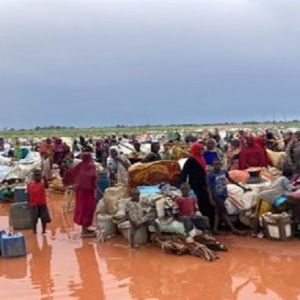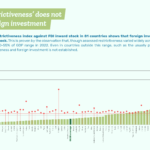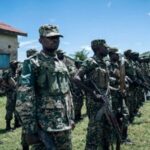
Although the Darfur region is predominantly Muslim, there are economic and ethnic differences in the region. Economically, the Arab groups had been nomadic herders, while the African groups (such as the Fur, Maasalit and Zaghawa) were pastoralists. The Sudanese government exploited these differences by arming ethnic Arab militia groups, known as the “Janjaweed,” to attack ethnic African groups.
RELATED:
Sudan Welcomes UN Rights Chief Condemning Paramilitary Forces
The region then witnessed the killing of hundreds of thousands of people in what was widely labeled a genocide. The government of Omar al-Bashir would then attack from the air, and then the Janjaweed forces would enact a scorched earth campaign, burning villages and poisoning wells. Nearly 400,000 people have been killed, women have been systematically raped, and millions of people have been displaced as a result of these actions.
Then came the idea of the intervention of United Nations forces based on Article VII to stop these violations and protect civilians. This initiative also failed, even though it reduced the violations to a certain level.
Complacency with the war criminals and the failure to disarm the Janjaweed led to the outbreak of war in a race for power and wealth between Hemeti and Al-Burhan.
In the framework of the current war in Sudan, the conflict returned to the region of Darfur (Nyala, Zalingei, El Geneina, Tawila, etc.). These cities are now the scene of a new genocide and the displacement of thousands, with the threat of civil war.
Many people from non-Arab communities are living again under the brutality of these attacks: the killings, massive destruction of property and food reserves, and looting. This is reminding them of the early dark days of the conflict in Darfur 20 years ago.
The Rapid Support Forces (RSR) are now calling for several Arab tribal leaders in South Darfur to stand with them. From his side, the other general, Abdul Fatah Burhan is calling on youth to take up arms to confront the RSF. There is a general fear among Sudanese that this could lead to a tribal, ethnic, and racist war. This also shows without doubt that both parties failed to resolve the war in favor of either of them.
To understand how the RSF became so powerful, causing this atrocious war the country is going through, we have to understand a series of elements. The Sudanese army did not try to stop Hemeti but rather legalize it constitutionally, its entry into the capital, and its acquisition of sovereign and military positions. All this was a result of the military powers that Hemeti gained and the great amount of wealth he accumulated with the support of the European Union to prevent immigration. In addition to this, he gained both wealth and power through his participation in the Yemen War and the gold that was granted in the gold mine at Jabal Amer. Even during Omar Al Bashir’s government, he benefited from the open budget that the previous Sudanese president allocated to his military element, the Janjaweed, and his companies, such as Al-Junaid Company, etc.
Darfur was the center from which the war was transferred to Khartoum to return to Darfur. Even with fighting concentrated in Khartoum, Darfur appears to still make up the largest share of the national count—more than 1,000 deaths and 11,000 injured by June 17—all figures that are widely believed to be underestimated and appear not to fully include Darfur.
With little hope in international efforts to broker a ceasefire, local players across Darfur decided to take matters into their own hands. Traditional leaders, revolutionary activists, and rebels—more or less connected and influential depending on the area—tried to obtain truces. They had some success in towns like el-Fasher. In others, the fatigue of 20 years of war may not yet be enough to extinguish the fire.
This situation requires urgency to stop this war, a comprehensive and just solution, the consolidation of peace, and democratic civil rule. This should begin with the dissolution of militias and movements ‘armies, the return of the displaced to their homes and villages, and fair compensation for them. The most important claim is to bring war criminals to trial.



